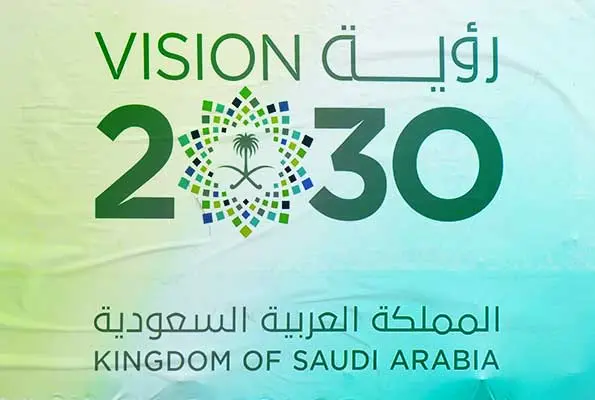Saudi Arabia is at a turning point in its civilisational history, starting a significant technological and economic revolution to create a knowledge-based economy. A key component of this ambitious vision is the growth of the deep-tech industry, which stands for the nexus of cutting-edge scientific research and new technologies that have the potential to transform entire sectors completely.
Now regarded as one of the top startup hubs in the Middle East, the Kingdom’s ecosystem attracts a sizable amount of venture capital and deals. Saudi Arabia’s deep tech ecosystem stands out for its alignment with the country’s energy goals. Startups there are addressing cutting-edge issues in grid resilience, hydrogen innovation, and sustainable infrastructure rather than merely creating hardware or apps.
A strong commitment to innovation is demonstrated by Saudi Arabia’s planned increase in research and development spending, which is expected to reach around 2% of GDP by 2040.
“Expenditures have already increased by 17% to approximately USD 6 billion in 2023, and the number of active research projects has increased by 22%, tenfold from USD 2.4 billion in 2019 to nearly USD 28 billion by 2040. Even with these encouraging advancements, there are still many obstacles to overcome,” noted Hamad S. Alshehab (strategic adviser to NGOs focused on empowering youth and community development in Saudi Arabia) and Hassan M. Alzain (author of the award-winning book Green Gambit: Climate Change, Climate Policy and the Race Against Time).
“Deep tech endeavours inevitably entail high startup costs, protracted development periods, and intricate market-entry obstacles. Despite its growth, local venture capital is still quite small when compared to well-established ecosystems like Shenzhen or Silicon Valley. The size of government investments has not yet been equalled by the level of private sector involvement, which is essential for developed innovation ecosystems,” the duo continued.
Additionally, despite improvements brought about by broader STEM programmes and relaxed visa requirements for foreign professionals, Saudi Arabia’s talent pool still lacks the specialised, advanced skills necessary to scale deep tech initiatives, especially in fields like quantum computing, advanced materials, and sophisticated semiconductor industries.
“Globally, Saudi Arabia can learn from the deep tech ecosystems in Europe, China, and the United States. Silicon Valley prospers due to strong private investment and close cooperation with top research universities, while Shenzhen quickly developed deep technological expertise by utilising state-driven economic zones,” Alshehab and Alzain suggested.
Europe places a strong emphasis on industrial research centres, public-private partnerships, and strategic R&D tax incentives, particularly in Germany and France. Saudi Arabia is in a unique position to combine these various approaches since it desires to become a global talent hub and already uses proactive regulatory reforms and special economic zones like NEOM.
With sustainability and resilience at its heart, Saudi Arabia’s “Vision 2030” framework serves as an enabling platform that links cross-sector investments with national innovation goals. As a result, by providing excellent jobs in cutting-edge industries and lowering dependency on traditional industries, these initiatives greatly boost the Kingdom’s GDP and employment prospects.
In addition to its ambitious goal of producing half of its electricity from renewable sources by 2030, which primarily depends on ground-breaking deep tech solutions in renewables integration, grid-scale storage, and carbon capture and utilisation technologies, this supports the Kingdom’s national pledge to achieve net-zero emissions by 2060.
“Reducing domestic consumption of fossil fuels allows energy-exporting countries to redirect valuable resources toward export markets, thereby supporting national economic resilience. For Saudi Arabia, this shift also aligns with the broader imperative of global decarbonisation. Deep tech, particularly in areas like grid optimisation, energy storage, and emissions management, may prove to be a critical enabler in achieving and sustaining these dual objectives,” Kenneth Gillingham, professor of Economics at Yale University, explains.
This realisation highlights Saudi Arabia’s dual benefits: securing economic gains through higher exports and expediting its shift to a low-emissions future through the strategic development of its deep tech sector. In order to maintain its dominant position in the global deep tech market, Saudi Arabia needs to implement a number of crucial measures.
First and foremost, it is crucial to provide incentives for significant private venture capital participation. Targeted tax incentives and co-investment plans may encourage more private participation and lessen the Kingdom’s dependency on state funding alone.
Second, specialised university-industry partnerships, increased international scholarships in cutting-edge tech fields, and proactive measures to draw in and keep foreign expertise should all greatly deepen the cultivation of talent.
Third, in order to accelerate the testing and commercialisation of energy innovations, especially in the areas of carbon management, hydrogen technologies, and renewable integration, regulatory sandboxes ought to be used more actively.
Fourth, the Kingdom should strengthen international ties by establishing close working relationships with prominent international research institutes in the United States, Europe, and China in order to promote innovation and incorporate Saudi deep tech projects into global supply chains. Fifth, expanding access to sophisticated testing facilities.
Deep tech is essential for lowering unemployment because it creates high-value industries that demand specialised knowledge. As these industries grow, they take in an increasing number of Saudi graduates with advanced degrees, resolving structural employment issues brought to light by recent research on the Kingdom’s shift to a knowledge-based economy.
If promoted with vision and cooperation, Saudi Arabia’s deep tech revolution has the potential to become a vital component of its economic competitiveness, environmental leadership, and sustainable development in the upcoming decades.


